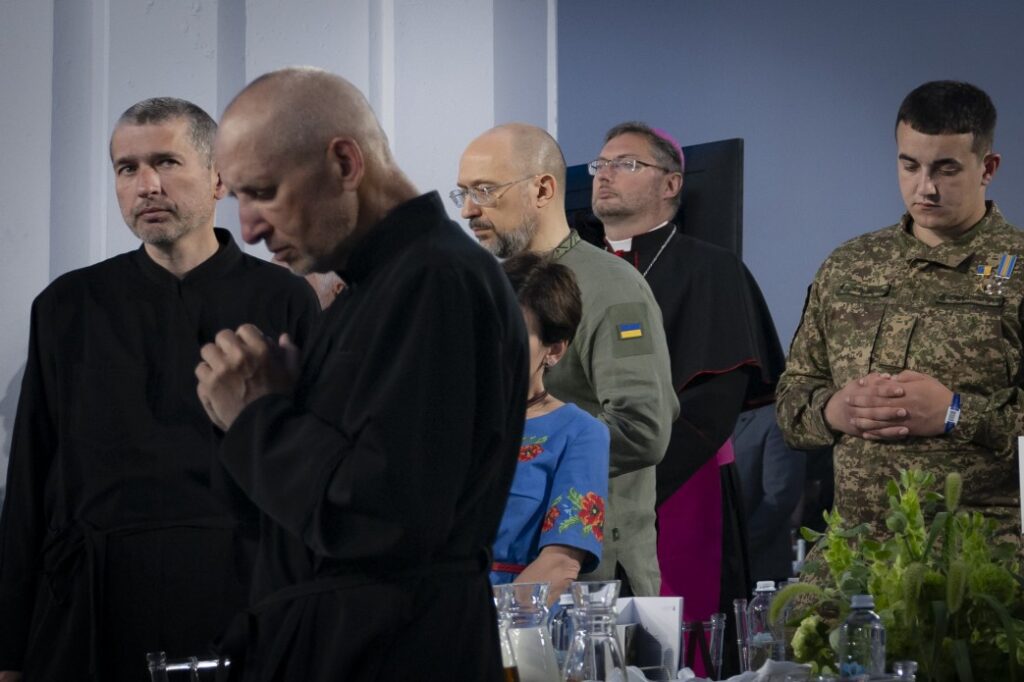Sailing’s coming home? Behind the scenes at Ineos Britannia’s bid for America’s Cup
Talking to a cyclor called Shrek wasn’t top of the to-do list when City A.M. was given access to the Ineos Britannia base in Barcelona ahead of the 37th America’s Cup. The iconic sailing contest, which starts in earnest on Thursday, dates back to 1851 when it was hosted in Britain, won by our friends [...]


Talking to a cyclor called Shrek wasn’t top of the to-do list when City A.M. was given access to the Ineos Britannia base in Barcelona ahead of the 37th America’s Cup.
The iconic sailing contest, which starts in earnest on Thursday, dates back to 1851 when it was hosted in Britain, won by our friends across the pond and lost, seemingly, forever.
Until now that is, says Shrek – also known as men’s rowing eight Olympic gold medallist Matt Gotrel. His passion for the Ben Ainslie-led project is clear to see, the excitement of the challenge ahead palpable.
Because the America’s Cup is rigged. The holders set the rules and have the advantage; it’s designed to be monumentally difficult to win.
“We’re on a mission to get it back,” the 6ft 5ins, 102kg Gotrel says. “Essentially you have one defender, New Zealand, and five challengers… it’s the best of the best of the best.
“The men’s eight has always been the pinnacle of Olympic rowing, and this is the same for sailing. We’ve got a team of almost 200 people and who is in the boat is the last piece of the puzzle. The technology and boat have been in progress for three years.”
And the role of a cyclor? Gotrel’s job is comparable to a Tour de France rider but on a boat. He will cycle to deliver power to the vessel. He won’t see much from an enclosed position looking down, but he’ll be making a difference alongside his fellow cyclors.
There is also a high premium on winning because America’s Cup projects don’t come cheap, Ineos Britannia’s chief operating officer David Endean says.
The French challenger who struck a deal with the Kiwis for one of their early boats is working to a budget around €50m. Sailing experts suggest that Ineos Britannia’s is double that, but the team are tight-lipped on their budget.
“Ben [Ainslie] manages a lot of the external aspects and I deal with the internal management of the team,” Endean tells City A.M. “We focus on time and performance; everyone has that in the back of their mind. We skimp and save on areas we think are luxurious and we spend as much as we can on making the boat go faster.”
That value-for-money principle runs through Ineos majority owner Sir Jim Ratcliffe’s other sporting projects.
The British billionaire’s most recent acquisition was 27 per cent of Manchester United, but his portfolio includes football clubs on the continent, the Ineos Grenadiers cycling team and Mercedes Formula 1, who are working closely on this America’s Cup project.
Those in Barcelona who know Ratcliffe suggest he is in this game for love and patriotism. When he visited the team and went out on the water with them he spoke of the need to bring the cup back to Britain.
It’s not been plain sailing for Ratcliffe in sport this year, though. He received criticism for the decision to move the Manchester United men’s team into the women’s dressing room and boot the WSL side elsewhere during a revamp of facilities at the training ground. He described the decision at the time as “pragmatic” while an Ineos spokesperson said the firm had invested in both teams.

Ratcliffe won’t face the same issue on the water this autumn given he or Ineos do not fund the women’s or youth America’s Cup teams. Members of both have upskilled with Ineos Britannia but Ratcliffe’s hefty wealth has eluded the two squads.
Double Olympic champion sailor Hannah Mills and Ainslie head up the Athena Pathway programme which aims to get young sailors into professional boats and is in charge of the first British women’s America’s Cup bidder.
She says this type of foil sailing does not offer regular opportunities so it has traditionally been difficult to develop women in the roles. She also points out that there has never been a ban on women competing in the “men’s” America’s Cup.
Mills’ role has seen her keep an eye on the progression of Tottenham teenager Kai Hockley, who joined the programme recently and has experienced SailGP on an internship with the team that will see him aim to be a pro sailor in years to come.
“Hopefully afterwards he goes back, speaks to his school, tells the kids what it was like and more people want the opportunity,” the Tokyo gold medallist adds.
More broadly, the common theme across the three teams is a deep patriotic streak, a keenness to bring the trophy home.

British sailing has had a tough year with an Olympic campaign that fell flat – kite surfing aside – and it isn’t beyond imagination that UK Sport could make cuts in the next funding cycle.
The America’s Cup, then, is the passion project with British success at its heart; using Formula 1 technology in Brackley, big money backing and Olympians to power the campaign.
But sport is brutal and three year’s work could be over by the first week in September when one of the five challengers is cut from the programme after the round-robin series that starts this week.
Ratcliffe wants success from his sporting portfolio to add to United’s FA Cup win and Lewis Hamilton’s victory at Silverstone, but the biggest titles have remained out of reach.
Unlike league football where there is often time to reverse bad form, even hitting a plastic bag at top speed in the America’s Cup, Gotrel says, can spell the end of a race.
Tiny margins will decide this America’s Cup, and no one thinks there will be a runaway winner. There’s so much that remains unknown, and that’s something no amount of millions can buy.
Ineos are confident, they put on a brave front, but the unknown will be eating away at them. The building work is done and all that’s left is for the racing to begin. And the mentality is clear: there is no second.



